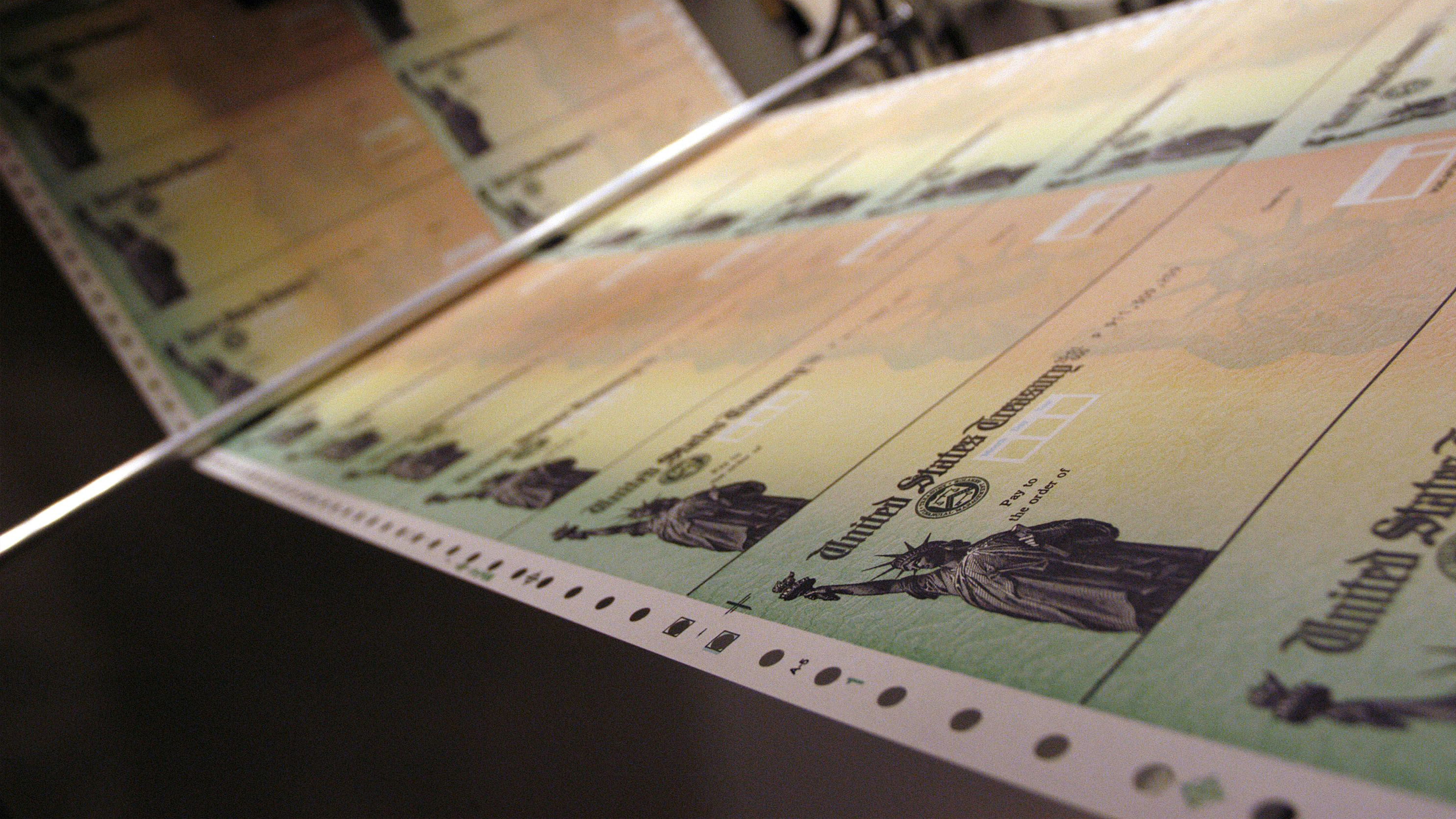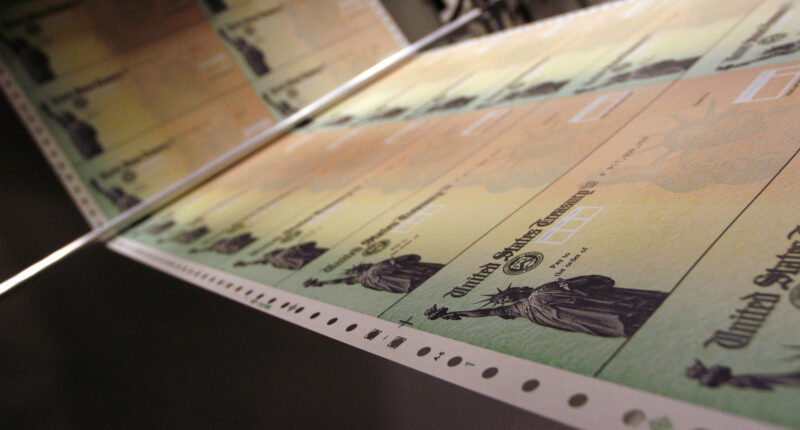Share this @internewscast.com
The Trump administration is preparing to discontinue paper checks for Social Security beneficiaries in a push to modernize federal benefits payments. This change impacts slightly over half a million recipients, equating to about 0.8% of all beneficiaries, who will need to select a new method to receive their payments.
There will, however, be some exceptions made. More on that in a minute.
In an announcement in mid-July, the Social Security Administration stated that beginning September 30, paper checks would no longer be issued. Beneficiaries currently receiving paper checks must choose between two options: receiving their payments via direct deposit into a bank account or, for those without bank accounts, obtaining their benefits through a pre-paid debit card called Direct Express.

William Thomas Cain/Getty Images North America/Getty Images via CNN Newsource
Why the switch? “It’s part of a broader government-wide initiative to modernize payment systems and enhance service delivery,” the SSA blog noted.
The US Treasury Department had previously indicated in late May that all federal payments, including Social Security benefits, tax refunds, and vendor payments, would transition to electronic delivery by September 30, following President Donald Trump’s directive to fully embrace electronic payments by that date.
“Paper checks are becoming an entry point for fraud,” the Treasury Department expressed. “We are committed to increasing awareness about the rising fraudulent risks linked with paper checks and equipping Americans with the necessary knowledge and tools to combat financial fraud and make informed financial choices,” the Treasury remarked.
Switching to electronic payments will also cut costs. The Social Security Administration noted that issuing paper checks costs around 50 cents each, whereas electronic funds transfer costs are under 15 cents per transaction.
But exceptions will be made.
On July 23, Sen. Elizabeth Warren, a member of the Senate Special Committee on Aging as well as the Senate Finance Subcommittee on Social Security, Pensions, and Family Policy, mentioned during a call with reporters that she had discussed with Social Security Commissioner Frank Bisignano, who assured her that exceptions to the new policy would be considered.
“Their plan is to start with people who do have checking accounts, but he made a commitment that no one will be left behind, and the people who still need access to paper checks will have that access to paper checks,” Warren told reporters.
The Social Security Administration hasn’t put out a public statement affirming that. But in an email replying to CNN’s queries, a Social Security spokesperson said, “SSA is proactively contacting those beneficiaries to alert them about the change and the process to enroll in direct deposit or receive Direct Express cards. Where a beneficiary has no other means to receive payment, we will continue to issue paper checks.”
The mandate for federal payments to be made electronically didn’t start with the Trump administration. It’s been a matter of law for years for most payments, although the law has allowed agencies to make exceptions.
At the GoDirect site, there is a section about how recipients who still need to receive a paper check can request a waiver.
But it notes exceptions are granted “only in rare circumstances.” Just three such circumstances are listed: 1) if “electronic payments would impose a hardship due to a mental impairment”; 2) if the benefits recipient “lives in a remote geographic location lacking the infrastructure to support electronic financial transactions”; and 3) if the recipient is age 90 or older.
The page instructs people who want a waiver to contact the Waiver Line at the US Treasury Electronic Payment Solution to request a waiver application at 1-855-290-1545. Or recipients may print out this form and mail it to the address listed at the bottom.
The CNN Wire™ & © 2023 Cable News Network, Inc., a Warner Bros. Discovery Company. All rights reserved.

















